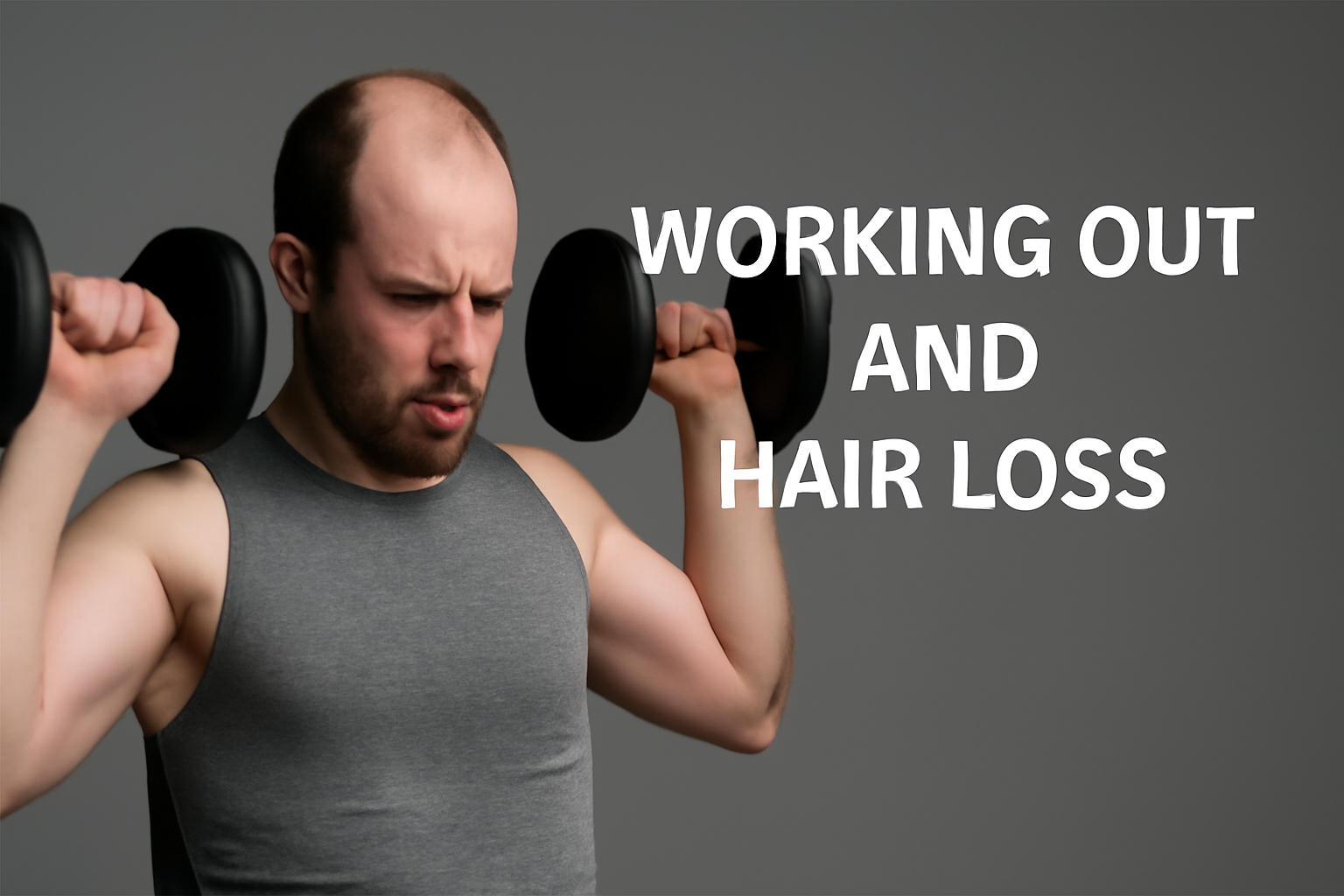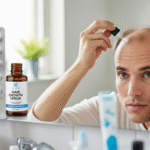Many individuals are concerned that their fitness routine might contribute to hair loss, especially when engaging in intense physical activities. Working out and hair loss is a topic that raises questions, particularly for those who are committed to their exercise routines but worried about hair thinning. In this article, we'll explore Can Working Out Cause …
Many individuals are concerned that their fitness routine might contribute to hair loss, especially when engaging in intense physical activities. Working out and hair loss is a topic that raises questions, particularly for those who are committed to their exercise routines but worried about hair thinning.
In this article, we’ll explore Can Working Out Cause Hair Loss and share expert tips on managing your hair while staying active. By reading on, you’ll understand the science behind exercise-induced hair loss and discover safe workout practices to protect your hair.
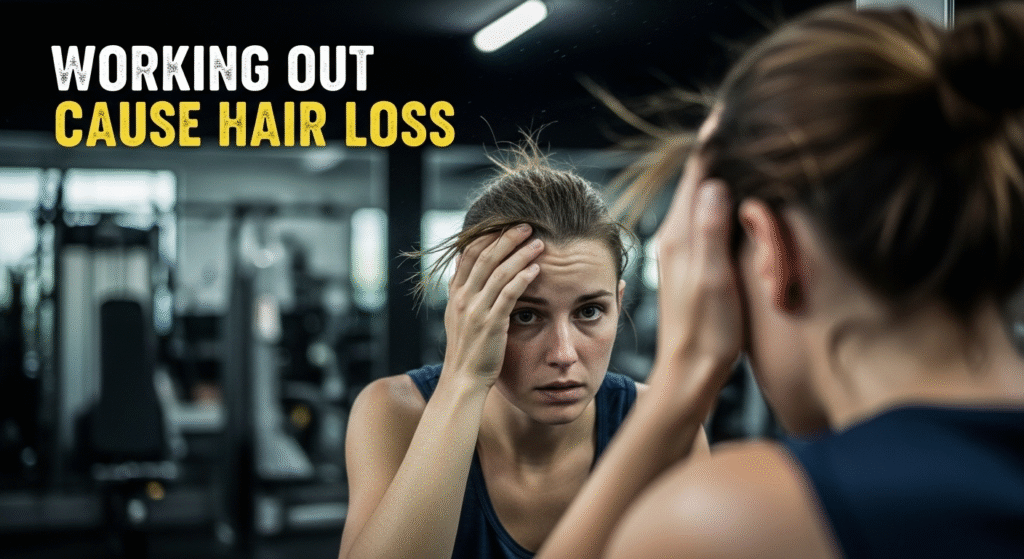
Why Does Working Out Affect Hair Loss?
While exercise is generally beneficial for overall health, excessive or intense physical activity can have an impact on hair growth. Here are some of the main reasons why working out might contribute to hair thinning or loss:
- Physical Stress: Intense exercise can cause physical stress on the body, which may trigger a type of hair loss known as telogen effluvium. This condition occurs when a large number of hair follicles prematurely enter the resting phase of the hair growth cycle due to stress.
- Hormonal Fluctuations: Heavy workouts, especially those involving endurance training, can lead to changes in hormone levels, particularly an increase in cortisol (the stress hormone). High cortisol levels can disrupt the natural balance of hormones that regulate hair growth.
- Increased Sweat: Sweat produced during intense workouts contains salt and other chemicals that can irritate the scalp, potentially leading to hair breakage or thinning over time.
- Moderation is key when it comes to high-intensity exercise. Balancing your workouts and allowing for recovery periods can minimize the risk of hair loss.
The Role of Sweat in Hair Loss
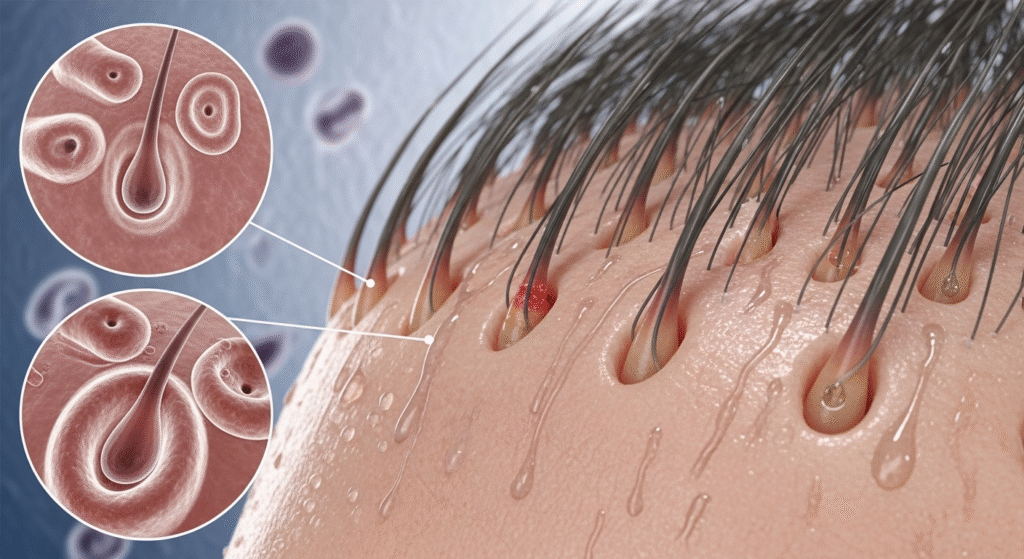
Sweating is a natural part of any workout, but it can have unintended consequences on hair health. Here’s how:
How Sweat Contributes to Hair Damage
Sweat contains not only water but also salts, urea, and other substances. If not properly washed away, sweat can build up on the scalp, clogging hair follicles and potentially leading to scalp irritation or fungal infections. Over time, this can weaken hair strands and promote hair thinning.
Preventing Scalp Damage from Sweat
To minimize the damage caused by sweat, follow these tips:
- Wash Your Hair Regularly: After workouts, make sure to rinse your hair and scalp thoroughly to remove sweat and impurities.
- Use Scalp-friendly Products: Use mild shampoos designed for your hair type to prevent irritation.
- Keep Your Hair Dry: Consider using a moisture-wicking cap or towel to absorb sweat during your workout.
Safe Workout Routines to Prevent Hair Loss
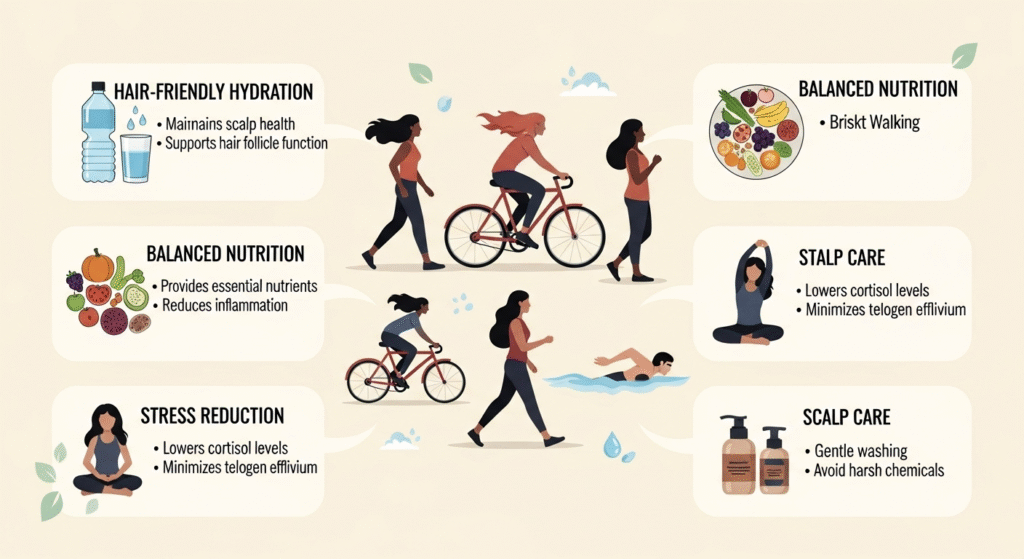
The type of exercise you engage in can affect your hair health. Some workouts are better for your hair than others, so it’s important to choose exercises that support overall well-being without placing too much stress on your body.
The Best Exercises for Healthy Hair Growth
- Low-Impact Workouts: Yoga, walking, or swimming are great low-impact exercises that promote blood circulation and overall health without putting too much stress on the body.
- Strength Training: Lifting weights or bodyweight exercises like squats or push-ups can improve muscle strength without causing excessive hormonal fluctuations.
How to Avoid Over-exercising
Over-exercising can lead to increased cortisol levels, which may disrupt the hair growth cycle. It’s important to:
- Take regular rest days.
- Avoid exercising for long hours without recovery.
- Ensure you’re eating enough nutrients to support both exercise and hair health.
When Can You Resume Working Out After a Hair Transplant?
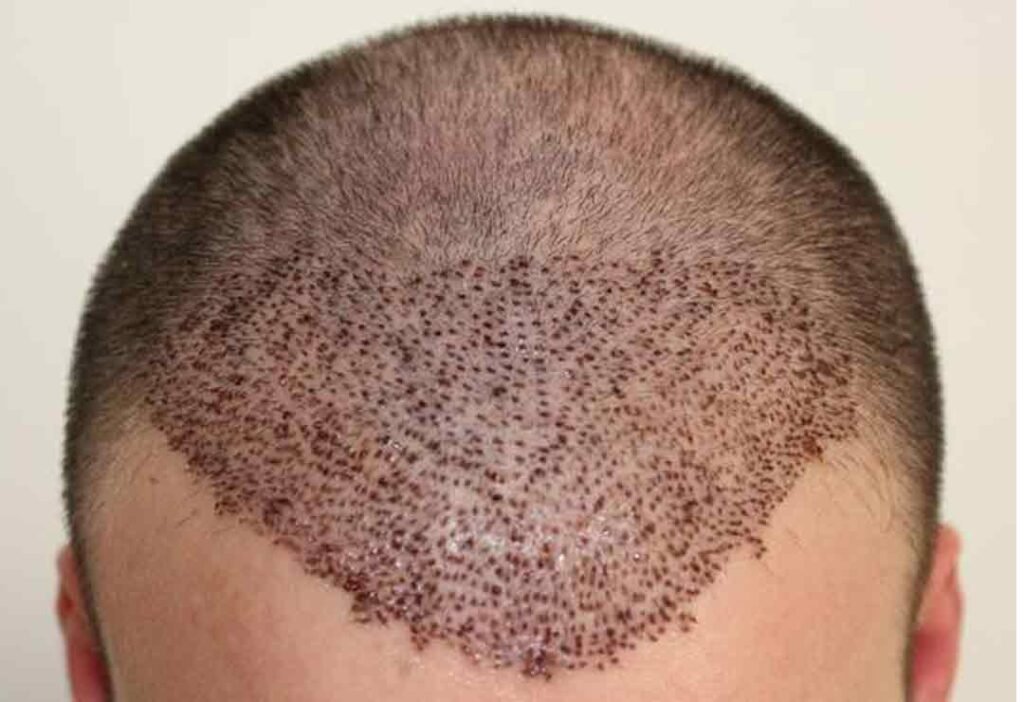
For individuals recovering from a hair transplant, it’s critical to understand the timeline for resuming exercise to ensure proper healing and avoid complications. Strenuous physical activity can interfere with the recovery process and affect the success of the transplant.
How Long Should I Avoid Sweating After a Hair Transplant?
After a hair transplant, patients should avoid sweating for at least 7-10 days to prevent irritation or infection in the newly transplanted follicles. This period is essential for ensuring that the grafts take properly and that the scalp heals without complications.
Safe Recovery Timeline and Precautions
- First 2 Weeks: Avoid any intense workouts, particularly those that involve sweating, like running or cycling. Light walking is encouraged.
- Weeks 3-6: You may gradually return to light exercise such as walking or yoga. Avoid high-intensity exercises like weightlifting or aerobic workouts.
- After 6 Weeks: After the initial healing phase, you can resume more strenuous exercise, but always consult your surgeon before returning to your full workout routine.
Can Working Out Cause Hair Loss: Expert Recovery Tips
Whether you’re recovering from a hair transplant or just want to maintain healthy hair while working out, the following tips will help you keep your hair strong:
Nutrition and Hydration for Hair Health
- Protein: Include enough protein in your diet to support hair growth and recovery after workouts. Foods like lean meats, eggs, and legumes are great sources of protein.
- Vitamins and Minerals: Ensure you get adequate amounts of vitamins A, C, and E, as well as iron and zinc, which are essential for healthy hair growth.
- Stay Hydrated: Drinking plenty of water helps maintain scalp hydration and prevents hair from becoming brittle.
Hair Care Regimen Post-Workout
- Shampoo After Workouts: Rinse your hair after each session to remove sweat and grime.
- Use Hair Masks: Treat your hair to a nourishing mask once a week to restore moisture and strength.
- Avoid Heat Styling: Excessive heat can damage your hair, so limit the use of blow dryers and flat irons.
Consider using a silk pillowcase at night to minimize friction and prevent hair breakage during sleep.
FAQs
Is Hair Loss from Working Out Permanent?
In most cases, exercise-induced hair loss is temporary. However, excessive stress from overtraining can lead to prolonged hair thinning. If you notice persistent hair loss, it’s important to consult a doctor.
Can Over-Training Really Lead to Hair Loss?
Yes, over-training can cause hormonal imbalances, particularly elevated cortisol levels, which may lead to hair loss. It’s crucial to find a balance in your fitness routine to avoid this issue.
Does Protein Supplementation Affect Hair Growth?
While protein is vital for hair health, over-reliance on protein supplements can lead to imbalances in other nutrients that are important for hair growth. A balanced diet is key.
Conclusion: Managing Exercise Without Compromising Hair Health
Maintaining a healthy balance between your fitness goals and hair care is crucial for ensuring long-term hair health. By moderating your exercise intensity, following proper post-workout hair care, and ensuring you’re nourishing your body with the right nutrients, you can continue to work out without compromising your hair. If you’re recovering from a hair transplant, follow expert recovery guidelines to ensure a smooth healing process.
Book a consultation with Dr. Uzma Irfan, an ISHRS-certified surgeon in Islamabad today to ensure a smooth and successful recovery after your hair transplant. Our team of specialists will guide you through your post-transplant care and help you maintain a healthy fitness routine without compromising your hair.

